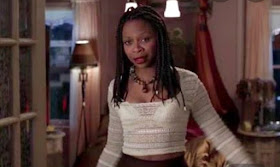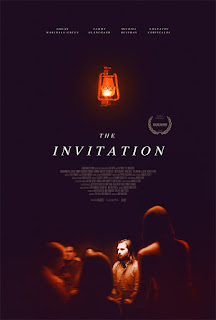Exactly twenty-five years ago, Eddie Murphy presented Vampire In Brooklyn, a comedy-horror directed by the legendary Wes Craven, written by Michael Lucker, Chris Parker, and the late Charlie Murphy— Eddie’s brother and longtime creative partner. At the center of this Coming to America vibe, is Rita Veder, the carbon copy replica of his longtime love (as it so happens in most vampiric tales). The Caribbean hailed Maximilian has arrived in a bloody boat, looking specifically for her.
However, Rita is no damsel in distress. Although terrifying moments occur, like a coffin appearing with her lookalike stowed inside or a hooded cobra striking at her, Rita stays grounded, keeps her cool. She is surrounded by skeptics and naysayers who believe a Black woman is losing her marbles, but Rita cares little for the opinion of others. When she is almost kidnapped by a disguised Max, she manages to gain the upper hand and save herself. Of course, Justice is pissed that he doesn’t get to be her shiny hero. Rita, though, is angry at him, believing that he was the one giving Nikki, her vanishing roommate, a wild romp night.
It is wonderful that two gorgeous Black women are onscreen, let alone two women sharing an apartment, but Nikki does not receive full development, let alone a direct conversation with Rita. Nikki is introduced only after Rita lets Justice into the apartment— not before. And yes, there are parts Nikki could have been readily inserted. Nikki tries the seductive temptress route with Justice, but he is not interested in her overly aggressive pursuit. Max, Nikki’s badly mistaken consolation prize, is out in the wings waiting for an opening. She lets the hypnotic vampire inside, succumbing to the full moon needs of sex and blood. Simbi Khali, around twenty-four years old at the time, was definitely underused here. She is a gifted actress, funny, talented. It would have added incredible depth to the script if Nikki were much like the Dr. Zeko character, knowing about the otherworldly phenomenon, talking to Rita about her paintings and her disturbing nightmares. Definitely, missing a potential scene there, but men wrote and directed...
Academy Award nominated, Golden Globe winning Angela Bassett shines here as the smart, charismatic detective with a profound passion and knowledge for art being wooed by two males eager to dominate. She easily transforms from mourning adult daughter in restricted uniform to a sensual woman drawn to Max’s magnetic prowess. That beautiful black, spaghetti strap dress donned for a first date, accentuated Rita’s deep brown skin— something missing in this colorist landscape of Black cinema. Bassett was absolutely riveting, lighting the screen with her elegant portrayal, miles above the problematic story. As far as supernatural and horror, Bassett stars in several of Ryan Murphy’s American Horror Story anthologies on FX and even survives Critters 4— the only straight-to-video in the tiny furball creature series.
Vampire in Brooklyn has Rita balancing between the bloodthirsty lure of vampiric existence or remaining an upstanding human. Max wants to show her the entire world, but the cost kills innocents. How could a woman choosing to protect lives handle wreaking such devastation for years and years like Max has? Rita’s internal battle is tough, especially when Justice is literally tantalizing her newfound hunger. She ultimately chooses the best decision fit for the evolution of her selfless character.







































